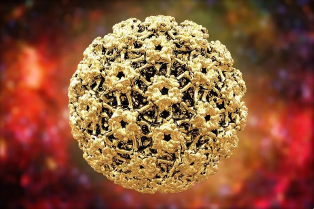
HPV, or human papillomavirus, is one of the most common sexually transmitted diseases in the 21st century. It is easy to pick up and impossible to treat. Seems drowning? We answer the most popular questions about this transition in our content!
What type of virus is this? New?
HPV is actually as old as the world. It is the one that causes the appearance of warts, papillomas, genital warts and other skin structures.< / pp >.
The likelihood of contracting positively increases with the number of sex partners: the more actively you are active, the more likely you are to become infected with HPV. Domestic transmission is also possible: someone else'sWhen using a towel or razor.
If your partner is infected with the virus, it is more likely that you have it too. Men with HPV develop genital warts and flat warts on both the penis and waist. If you suddenly notice strange skin growth. If you do, inform your lover immediately and get the proper test.
How do I know if I have HPV?
The easiest way is to get gynecological smears for HPV and cytology. As we have already noted, only 16 strains of the virus are tested. It is possible to suspect that you have 6 without testing. Or 11th stress: If you or your partner have papilloma or genital warts, you are most likely a carrier of papillomavirus, and tests will confirm this.
If I have HPV, do I have cancer?
Do not drive your horses. As we have already said, over 80% of women on the planet during their lives have time to get HPV. Obviously, not everyone has developed cervical cancer. The development of an early condition from infection takes a long time. Attend the annual scheduled examination with a gynecologist, test on time and then the doctor diagnoses the presence of HPV and the first malignant changes in cells long before the development of cancer. Will do.
Even if you have found one or several of 14 or extremely high oncogenic types of the virus, cytological analysis does not necessarily indicate the presence of malignant cells. At a young age, with good immunity, cells with signs of malfunctionRarely found in PAP tests, so exhale, calm down and read.
Is HPV being treated?
"If HPV is so dangerous, it needs immediate treatment! " - maybe this thinking flew out of your head. Unfortunately, there is no way or medicine yet to get that drug from HPV once and for all. However, with immunomodulatory therapy and a proper lifestyle, you can achieve long-term remission and prevent the devastation of the virus.
HPV treatment should be comprehensive. In the presence of genital warts and genital warts, they will have to be removed by one of the methods: surgery, radio wave knife, laser or cryodestriction.
Warts cannot be removed?
No, you can't: The virus is concentrated in and remains in these neoplasms, meaning that later treatment becomes less effective. In addition, you hardly want to leave them: it's possible that sexDuring the course of unpleasant sensations will occur, not to mention the fact that such cosmetic defects will negatively affect your self-esteem, self-confidence, on the relationship with your partner.
can they get on their own?
But this scenario is quite possible: strengthening the immune system, a healthy lifestyle, quitting bad habits, and daily use of local antiviral agents (ointments or sprays) - a complex of these remedies can make warts disappear.
However, there is good news: HPV cannot be treated, but in most cases it ends on its own, losing strong immunity from an unequal fight. It takes two years from the moment of infection. Occurs within, and in a young, strong organism, the process is naturally accelerated.< / pp >. how! And previously removed condylomas can also reappear. If your man is infected and has external manifestations of the virus - genital warts - there is a high chance that he will be reabsorbed. All sex without exception. Infections should be treated by both partners: use inhibitory methods of protection caused by HPV, maintain strong immunity and conduct appropriate therapy. If you have found HPV, do not hide it from your partner. It may not require complicated treatment, but will only benefit from immuno-modulating therapy. If you suspect HPV, we would advise you not to panic and contact a specialist - obstetrician - gynecologist.














































































